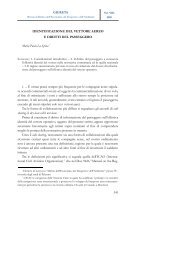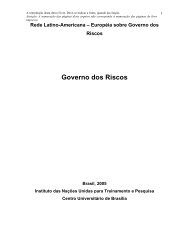The Old and the New Limits to Freedom of Contract in Europe
The Old and the New Limits to Freedom of Contract in Europe
The Old and the New Limits to Freedom of Contract in Europe
You also want an ePaper? Increase the reach of your titles
YUMPU automatically turns print PDFs into web optimized ePapers that Google loves.
ERCL 2/2006 <strong>The</strong> <strong>Old</strong> <strong>and</strong> <strong>the</strong> <strong>New</strong> <strong>Limits</strong> <strong>to</strong> <strong>Freedom</strong> <strong>of</strong> <strong>Contract</strong> <strong>in</strong> <strong>Europe</strong><br />
261<br />
from bodily services accord<strong>in</strong>g <strong>to</strong> <strong>the</strong> law, but ra<strong>the</strong>r turn<strong>in</strong>g sexual transactions<br />
<strong>in</strong><strong>to</strong> enforceable contracts.<br />
In contrast, o<strong>the</strong>r Member States have enacted a <strong>to</strong>tal (Sweden) or partial<br />
(France) abolitionist policy. Consequently not only <strong>the</strong> prostitute/client<br />
transactions, but also commercial contracts even <strong>in</strong>directly related <strong>to</strong> prostitution<br />
(like l<strong>and</strong>lord/tenant contractual relations, accord<strong>in</strong>g <strong>to</strong> <strong>the</strong> dom<strong>in</strong>ant<br />
<strong>in</strong>terpretation <strong>in</strong> French case law) 7 are treated as void.<br />
Now, <strong>the</strong> comb<strong>in</strong>ation <strong>of</strong> <strong>the</strong> common core approach with <strong>the</strong> m<strong>in</strong>imum<br />
common fac<strong>to</strong>r strategy would require sett<strong>in</strong>g <strong>the</strong> notion <strong>of</strong> freedom <strong>of</strong> contract<br />
– <strong>in</strong> reference <strong>to</strong> sexual transactions <strong>and</strong> <strong>the</strong> like – at <strong>the</strong> level established<br />
by Swedish law. In o<strong>the</strong>r words, <strong>the</strong> consequence <strong>of</strong> harmonis<strong>in</strong>g <strong>the</strong> notion<br />
<strong>of</strong> immoral/illegal contract would be <strong>to</strong> select <strong>and</strong> enforce <strong>the</strong> narrowest<br />
notion <strong>of</strong> freedom <strong>of</strong> contract among those enacted <strong>in</strong> <strong>Europe</strong>. However, this<br />
outcome conflicts with <strong>the</strong> <strong>in</strong>creas<strong>in</strong>gly common idea that courts should<br />
enforce contracts <strong>in</strong> respect <strong>of</strong> all types <strong>of</strong> social relations, as long as <strong>the</strong>y do<br />
not break conventional moral st<strong>and</strong>ards <strong>and</strong> do not frustrate <strong>the</strong> fair distributive<br />
scheme. 8 Moreover, <strong>in</strong> <strong>the</strong> Jany case, 9 <strong>the</strong> ECJ has followed <strong>the</strong> opposite<br />
po<strong>in</strong>t <strong>of</strong> view as far as <strong>the</strong> relation between prostitution <strong>and</strong> <strong>the</strong> market is<br />
concerned! More precisely <strong>the</strong> Court has stated that prostitution is not<br />
contrary <strong>to</strong> public policy <strong>in</strong> <strong>the</strong> EC <strong>and</strong> sex-workers enjoy freedom <strong>of</strong> movement<br />
<strong>and</strong> establishment with<strong>in</strong> <strong>the</strong> <strong>Europe</strong>an Union borders.<br />
III. <strong>The</strong> <strong>Limits</strong> <strong>of</strong> <strong>Freedom</strong> <strong>of</strong> <strong>Contract</strong> <strong>in</strong> <strong>Europe</strong>: <strong>the</strong> Models<br />
1. <strong>The</strong> Paternalistic Model<br />
This is <strong>the</strong> most traditional model. <strong>The</strong> ideological framework is <strong>the</strong> <strong>in</strong>dividualism<br />
<strong>of</strong> Classical Legal Thought. <strong>The</strong> state is entitled <strong>to</strong> <strong>in</strong>terfere with selfdeterm<strong>in</strong>ation<br />
<strong>of</strong> <strong>in</strong>dividuals (freedom <strong>of</strong> contract) as long as its <strong>in</strong>tervention<br />
is legitimated by <strong>the</strong> superior moral authority <strong>of</strong> <strong>the</strong> law <strong>and</strong> is restricted<br />
<strong>to</strong> very narrow ambits. <strong>The</strong> law enforces <strong>the</strong> free will <strong>of</strong> <strong>the</strong> parties unless it<br />
collides with various <strong>in</strong>terests pursued by <strong>the</strong> state.<br />
<strong>Contract</strong>s are basically set aside when <strong>the</strong>y threaten <strong>the</strong> <strong>in</strong>tegrity <strong>of</strong> <strong>the</strong> state<br />
<strong>and</strong> its <strong>in</strong>stitutions (by res<strong>to</strong>r<strong>in</strong>g, for example, feudal structures) or funda-<br />
7 S. M. Iacub / P. Maniglier, Antimanuel d’éducation sexuelle (Rosny Cedex: Bréal, 2005)<br />
236.<br />
8 Coll<strong>in</strong>s, n 5 above, 99.<br />
9 Case 268/99 Jany v Staatsecretaris van Justitutie, ECJ 20 November 2001.



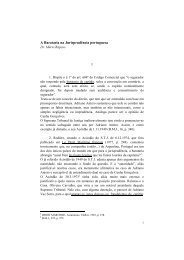



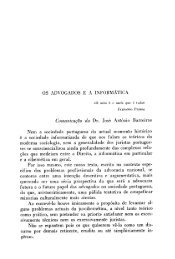
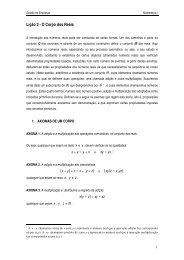

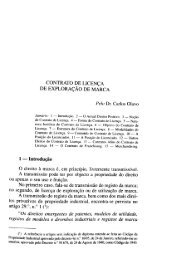
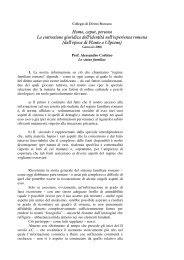
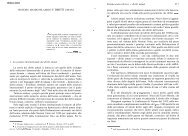

![Luigi Sapio Nozione di islām La parola “islām” [ ] è il mas.dar1 ...](https://img.yumpu.com/15836073/1/185x260/luigi-sapio-nozione-di-islam-la-parola-islam-e-il-masdar1-.jpg?quality=85)
